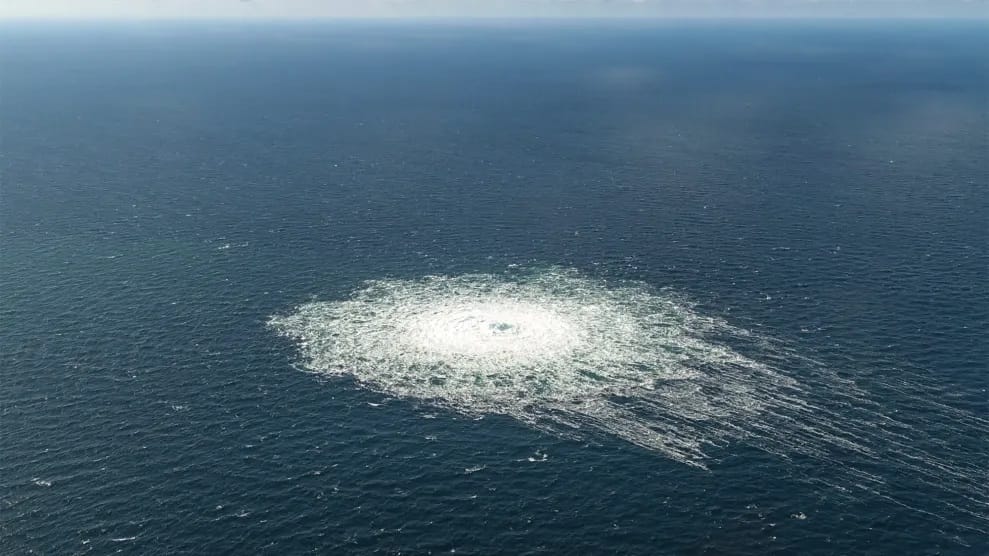
"The supreme art of war is to subdue the enemy without fighting."
Our Week at the Military Influencers Conference:

We recently had the unique opportunity to attend the Military Influencers Convention, in the bustling city of Las Vegas, Nevada. This was a gathering of thought leaders and influencers within the military community. This event proved to be a pivotal moment for Aucoin Analytics as we engaged in meaningful networking, promoted our brand, scheduled interviews for our podcast, Insightful Inquiries, and sought advice from notable figures, including former Democratic Presidential Candidate Andrew Yang.
Networking at Its Finest:
The Military Influencers Convention provided an unparalleled platform for connecting with individuals who share a passion for the military and its impact on society. Engaging with influencers and thought leaders allowed us to forge valuable relationships, exchange ideas, and lay the groundwork for potential collaborations.
Amidst the hustle and bustle of the convention floor, we seized the opportunity to introduce Aucoin Analytics to a diverse audience. Our professional and engaging approach resonated well, sparking genuine interest in our services as the go-to private intelligence company for discussions on the current state of geopolitics.
Promoting Aucoin Analytics:
At the heart of our agenda was the promotion of Aucoin Analytics as the premier affordable private intelligence solution for civilians. Through strategic interactions with attendees, we highlighted our commitment to delivering reliable, affordable, and accessible intelligence services. The convention served as an ideal setting to showcase the practical applications of our offerings, fostering a positive reception among those seeking high-quality intelligence without breaking the bank.
This Week Explained | A Podcast on the Rise:
One of the highlights of our week at the convention was the opportunity to schedule interviews for the monthly interview podcast from This Week Explained known as Insightful Inquiries. The podcast, dedicated to exploring diverse perspectives on the military, intelligence, and security, gained traction as we secured conversations with influential figures within the military and intelligence community.
These interviews not only allow us to amplify our brand but also provide a platform for these thought leaders to share their insights with a broader audience. From seasoned veterans to emerging voices, our podcast aims to remain a hub for engaging discussions on the evolving landscape of intelligence.
Q&A with Andrew Yang:
A standout moment during the convention was the chance to pose a crucial question to former Democratic Presidential Candidate Andrew Yang. In a candid and insightful discussion, we asked Mr. Yang for his thoughts on restoring credibility in the intelligence community, a topic of increasing relevance in today's complex geopolitical landscape.
Yang's response, grounded in pragmatism and a keen understanding of the challenges at hand, provided valuable insights that resonated with our mission at Aucoin Analytics. Andrew Yang's viewpoint on removing ‘us vs them’ politics from our institutions underscored the reality that this issue extends beyond the confines of the intelligence community; it permeates all sectors of our institutions. His perspectives on transparency, accountability, and collaboration offered a roadmap for our continued efforts to ensure credibility in the private intelligence sector.
The week at the Military Influencers Convention in Las Vegas was more than just a networking opportunity; it was a transformative experience for Aucoin Analytics. From forging connections with influencers to promoting our brand as a leading private intelligence company, every interaction contributed to our mission of making intelligence accessible to the civilian consumer.
As we reflect on the week's successes, the scheduled interviews for Insightful Inquiries and the invaluable advice from Andrew Yang stand out as testament to the impact and potential of Aucoin Analytics. The convention served as a launchpad for our continued growth, inspiring us to push the boundaries of private intelligence and contribute meaningfully to the broader discourse on the military, security, and intelligence.
Stay safe out there!
Latest on the Israel-Hamas Conflict

The ongoing conflict between Hamas and Israel has escalated, resulting in significant casualties and a rapidly deteriorating humanitarian situation. The conflict, characterized by intense military operations and targeted strikes, has drawn international attention. It has raised concerns about civilian safety, infrastructure damage, and the overall stability of the region.
On October 7, Hamas initiated an unprecedented assault on Israel from the Gaza Strip. This resulted in approximately 1,200 deaths and over 200 hostages. In response, Israel launched air strikes and a ground offensive. Israel’s goal is to destroy Hamas's military and governing capabilities and secure the release of hostages. The military operations have primarily focus on northern Gaza, particularly densely-populated Gaza City. The humanitarian situation is dire, with major UN agencies calling for an immediate ceasefire and expressing alarm at the impact on the civilian population.
This past week the Hamas-Israel conflict has entered a critical phase in a growing humanitarian crisis. Many nations have called for an immediate ceasefire to prevent further loss of life and address the urgent humanitarian needs of the affected population.
Analyst Comments:
The deteriorating situation at Al-Shifa hospital in Gaza City, coupled with reports of attacks on medical facilities, could potentially escalate the conflict into a regional crisis. The destruction of critical infrastructure and civilian casualties may prompt neighboring countries to intervene, amplifying the scale of the conflict. The true extent of the destruction is likely skewed by both sides to showcase their narrative, making it challenging to assess the full impact accurately.
The Israeli Defense Forces' (IDF) extensive strikes, aimed at demilitarizing Hamas and securing the release of hostages, might inadvertently contribute to a wider regional conflict. The intensity and scope of these operations, if perceived differently by regional actors, could trigger their involvement. The manipulation of casualty figures by both sides adds a layer of complexity, making it challenging to gauge the actual toll on civilians and infrastructure. Nevertheless, according to existing intelligence assessments, the probability of Hezbollah becoming involved in the Gaza conflict is assessed to be less than 50%.
Hamas's effective information operations campaign, winning hearts and minds globally, showcases the power of asymmetric warfare. Despite garnering international support, especially in online spaces, the conflict continues, indicating that global sentiment alone may not alter Israel's military strategy. The effectiveness of information operations, while shaping perceptions, may not necessarily translate into a shift in the ground reality or influence Israel's determination to counter the terror group.
Nord Stream Pipeline Sabotage Investigation Points to Ukrainian Operative, But Questions Remain

A joint investigation by The Washington Post and German outlet Der Spiegel points to Roman Chervinsky, a 48-year-old who served in Ukraine's Special Operations Forces, as the "coordinator" of the Nord Stream pipeline sabotage. Chervinsky allegedly oversaw logistics and support for a team that used a sailing boat, false identities, and diving equipment to place explosive charges on the pipelines. The explosions damaged three of the four pipelines comprising Nord Stream 1 and Nord Stream 2, releasing gas into the Baltic Sea.
Chervinsky, however, denies any involvement, stating through his lawyer that speculations about his role are spread by Russian propaganda without basis. The report indicates that he did not plan the operation alone and took orders from senior Ukrainian officials. Ukrainian President Volodymyr Zelensky, who has consistently denied his country's involvement, was reportedly kept in the dark about the Nord Stream operation.
The sabotage of the Nord Stream pipelines, a critical route for Russian gas exports to Europe, has led to heightened tensions and a complex web of theories regarding the responsible party. The original reactions emphasized the deliberate nature of the act and the subsequent investigations by both Russian and European authorities. The latest report adds a new layer to the narrative, singling out a Ukrainian Special Operations Forces veteran, Roman Chervinsky, as the alleged coordinator of the operation. However, it is crucial to note that there is zero tangible evidence for any of the theories, and each has its own plausible elements.
I. Original Theories:
Russian Involvement:
Plausibility: Given the historical context of geopolitical tensions, especially in the aftermath of Russia's invasion of Ukraine, suspicion naturally falls on Moscow. Former CIA Director John Brennan's assertion that the leaks were a result of sabotage by Russia adds weight to this theory.
Evidence: Russia has dismissed these accusations as predictable and stupid. While no tangible evidence has been provided, the lack of a clear alibi and the initiation of an investigation by Russia's FSB intelligence agency contribute to suspicion.
U.S. Involvement:
Plausibility: The involvement of the United States is suggested by the nature of the geopolitical landscape and the alliance with European partners. The U.S. expressing support for the investigation indicates a vested interest in the outcome. The U.S. has a history of using its elite intelligence agency, the Central Intelligence Agency (CIA), for events similar to the Nord Stream sabotage.
Evidence: The U.S. denial of involvement is consistent, and there is no concrete evidence linking them to the sabotage. The support for the investigation can be seen as a diplomatic stance rather than an admission of guilt.
II. Latest Report:
Ukrainian Involvement:
Plausibility: The energy crisis in Europe following Russia's invasion of Ukraine sets the stage for potential Ukrainian involvement. The latest report implicating Roman Chervinsky, a Ukrainian Special Operations Forces veteran, adds complexity to this theory.
Evidence: Chervinsky denies any role, and there is no direct evidence linking him or the Ukrainian government to the sabotage. President Zelensky's repeated denials further muddy the waters. Ukraine would benefit most from the destruction of the pipeline however, until credible sources come forward, there is no evidence to point the finger at Chervinsky and Ukraine.
Analyst Comment:
Each theory has its own set of plausible elements, with geopolitical motivations and historical context influencing suspicions. Russian involvement is plausible due to historical tensions, Ukrainian involvement is conceivable considering the energy crisis and Chervinsky's alleged role, and U.S. involvement is suggested by historical clandestine events.
The lack of tangible evidence and the reliance on anonymous sources raise questions about the credibility of the information presented. All organizations should strive for transparency and verifiability to enhance the credibility of their findings.
Each intelligence agency utilizes the information to shape global opinions, either by reinforcing existing narratives or introducing new elements to the discourse. The lack of concrete evidence allows these agencies to leverage uncertainty, influencing public perception to align with their respective geopolitical goals. This uncertainty will remain until verifiable evidence is produce that proves a certain entity performed the attack.
This Week Explained

Stay safe out there

